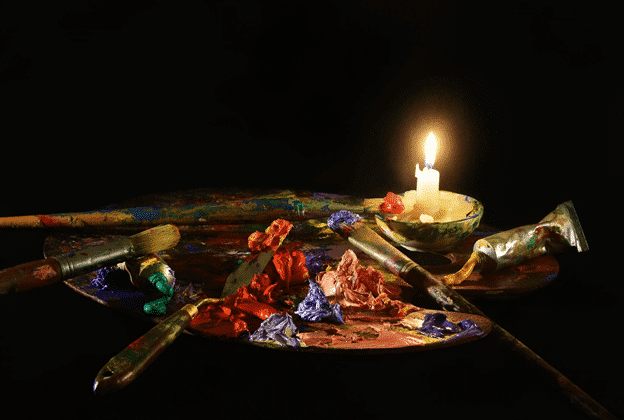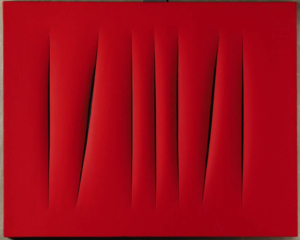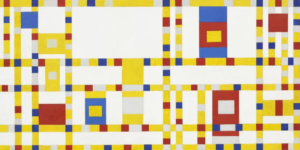This is a question that aspiring artists have been struggling with for ages. Numerous creative people carry the artistic spark from early childhood, and they feel an urge to express their creative vision. However, as time goes by, many questions, doubts, and fears restrain them from nourishing this gift, and some turn to more “stable” careers. An array of accomplished artists spent years doing regular jobs before they dared to make the first steps toward building a professional career in art.
For renowned illustrator and author Lisa Congdon, the crucial moment for making this life-changing decision was when she felt the need to be more creative in her life. She knew she had to do something about it. Even though she was happy with her teaching job, she recognized the possibility of starting an art career, and she jumped on it. Patrick Howe had a similar enlightening moment that prompted him to leave a lucrative job in an advertising agency and take a plunge into artistic depths in an attempt to become an established, full-time artist. Today he is a successful artist and gallerist, and also teaches watercolor and painting classes. These encouraging stories prove that you can build a career in art if you invest time and energy into this demanding process and take action.
It takes a lot of courage, confidence, and discipline to fight all the doubts and turn your art into a career because of all the challenges artists face daily. You will need the courage to step out on the art scene and share your creative vision in this demanding market. Also, confidence will make you strong enough to accept rejection and negative critique as an inevitable part of a developing art career. Finally, you will need discipline to turn your art into a profitable business.
This article will tackle the biggest challenges you have to face when deciding whether to pursue an art career or not. It will also show you how to overcome these obstacles and give you useful career advice on how to make a career in art.

Challenges You Have To Face Before Starting An Art Career
One of the biggest obstacles you need to overcome when starting an art career is constantly questioning your art’s quality. If you have a unique artistic vision that you want to share with the world, go for it. Do not compare your art with other successful fine artists, and do not create art just to please the public. Remain faithful to your inner artistic voice and make art on a regular basis to achieve success that is meaningful. By doing this, you will create a recognizable style that will attract your audience. A degree from an art school or the number of pieces you sell will not necessarily define you as a successful artist. Professional artists are those who produce works of art filled with aesthetic and creative quality that transfer into commercial value in the art market.
Fear of rejection is another thing you have to fight on your road to building a career in art. You will need to face the rejection and negative reviews more often than you would like to. You should not let these obstacles undermine your confidence. Instead, you should take the negative comments and turn them into motivation to work consistently on improving your skills. Stop comparing yourself with others and learn how to turn rejection into motivation to excel. This way, you will build the artistic integrity and confidence needed for developing an enduring art career.
Another major concern aspiring artists have to tackle is how to make their work competitive in the art market. This is a delicate issue that many artists struggle with at the beginning of their careers. Finding vibrant artistic expression and conveying a unique message through your creation is what makes a true artist. However, fitting the unique artistic style into art market demands is what makes a profitable artist. One of the greatest fears of the artists starting out in the art scene is that their artistic style will not fit the market’s commercial demands. There is no right or wrong way to approach your art and develop your business; only you can set your career path. If you think you do not fit into current market trends, create your artistic niche, find the target audience, and reach out to them.
The times of starving artists who lived for their art have long passed. Nowadays, artists want to live from their art and pay the bills. Turning your creative drive into a profitable business is a demanding process that requires a lot of researching and tackling non-artistic issues. If you want to make money as an artist, you have to invest a lot of time in learning about the art business. This means you need to commit a significant amount of time to doing bookkeeping, art marketing, paying bills, buying supplies, and many other things that will at times drive you away from your art. This process may be overwhelming for aspiring artists who are keen on establishing a fine arts career and gaining the attention of gallery owners or art dealers. They may feel lost in this unfamiliar world of numbers and paperwork. You can solve this problem by finding someone to help you go through the art business basics. However, this can be a costly solution, so it may well be best to read some comprehensive guides on building an art career. These practical books will take you to provide you with the essential knowledge needed for starting an art business.
These are some challenges every aspiring artist has to tackle while making the first steps in building a successful art career and becoming a famous artist. Now let’s see what you can do to make this process easier and less challenging.

1. Constantly Work on Your Skills
A true artist never stops excelling their skills. They know that making art is a lifelong learning process, so they tend to create daily. If you feel you lack inspiration for creating a substantial piece of art, dedicate your time to learning new techniques or presenting a subject matter in a way that defines you as an artist. This way, you will add value to your artwork and keep that creative spark burning. You can always take some new courses if you want to try new art mediums for your creative expression. If you want to make valuable art pieces that will sell, you need to be persistent in improving your skills and stay committed to your work.
2. Get Yourself on the Scene
You have to promote yourself relentlessly to become an artist that makes recognizable and profitable pieces of art. Nobody will sell your art better than you, so be prepared to talk about art and take the following steps:
- Learn to talk about your art. By explaining your artistic vision, you will reach out to the audience easier. Describing the artwork and the creative process behind it plays a vital role in attracting potential clients and selling your art.
- Take part in art competitions and visit galleries. Participating in art competitions and being regularly exposed to visual art is an excellent way to present yourself to the art world and gain the desired visibility for your work.
- Spend time in networking at art fairs and in the online community. Use social online platforms like ARTDEX as a tool for reaching out to worldwide audiences and fellow artists. Make various social media accounts and use them to present your work and interact with your audience. Connect your profiles with your website and make it easy for customers to buy your art pieces online.
3. Make a Realistic Business Plan
Once you have learned the essential things about running a business, you can start devising your art business strategy. First of all, you need to set goals. You need to have long and short term goals. Long term goals can be general, like building a broad client base, earning enough money from fine art so that you can quit your day job, and soon. On the other hand, short term goals should be specific, with determined deadlines, like extending the list of professional contacts, setting up and promoting your website, and so on.
Create a budget and learn how to manage it. You may find someone to teach you how to do this, or you can learn yourself. Be reliable and try to respect set deadlines. Some artists may find it challenging to maintain open communication with clients, but this is essential for your future reputation.
Final Words
This article addressed the burning question many creative people are struggling with: making the decision to start an art career is a life-changing moment. Aspiring artists have to come a long way, facing many challenges and overcoming numerous obstacles to become accomplished artists. You will need courage, commitment, confidence, and discipline to turn your creative vision into a profitable business. But once you overcome all the doubts and fears related to the life and career of an artist, you will start enjoying the fruits of your hard work.


![[Left] Kusama with her piece Dots Obsession, 2012, via AWARE, [Right] Yayoi Kusama (Courtesy Whitney Museum of American Art) | Source: thecollector.com](https://www.artdex.com/wp-content/uploads/2024/04/Left-Kusama-with-her-piece-Dots-Obsession-2012-via-AWARE-Right-Yayoi-Kusama-Courtesy-Whitney-Museum-of-American-Art-Source-thecollector.com--300x172.png)




